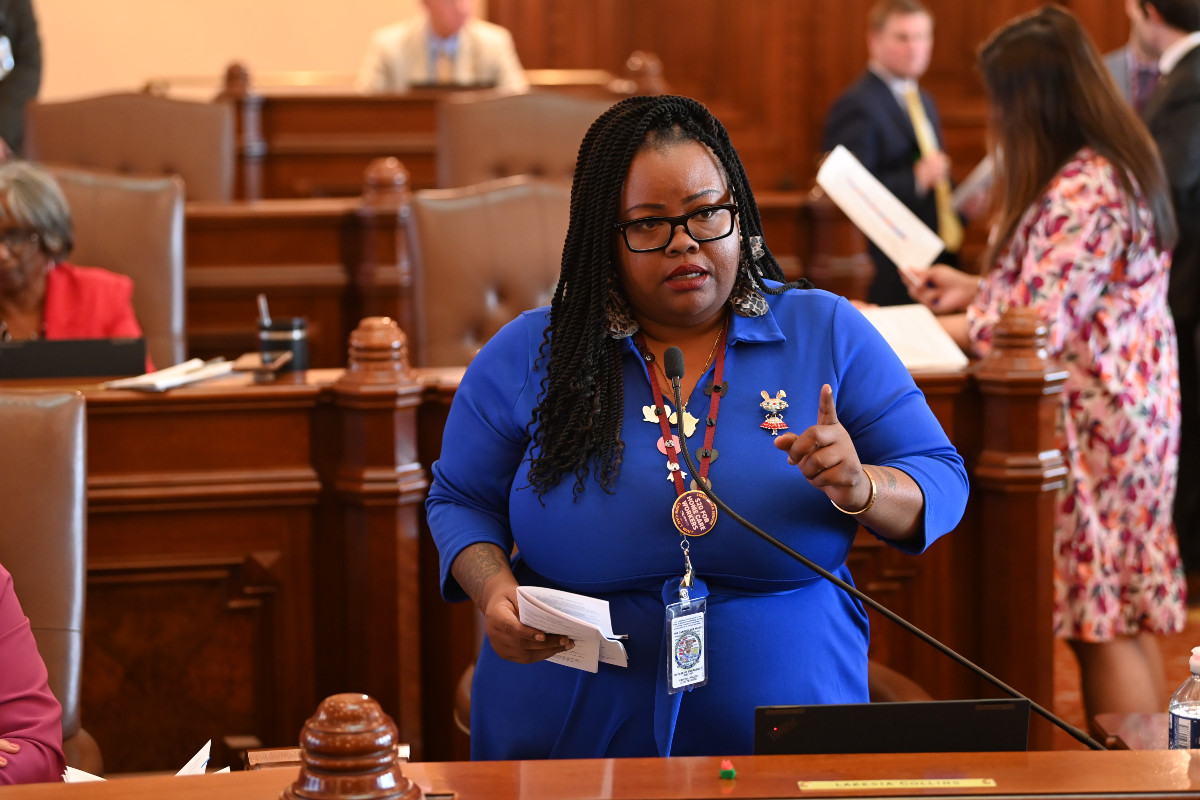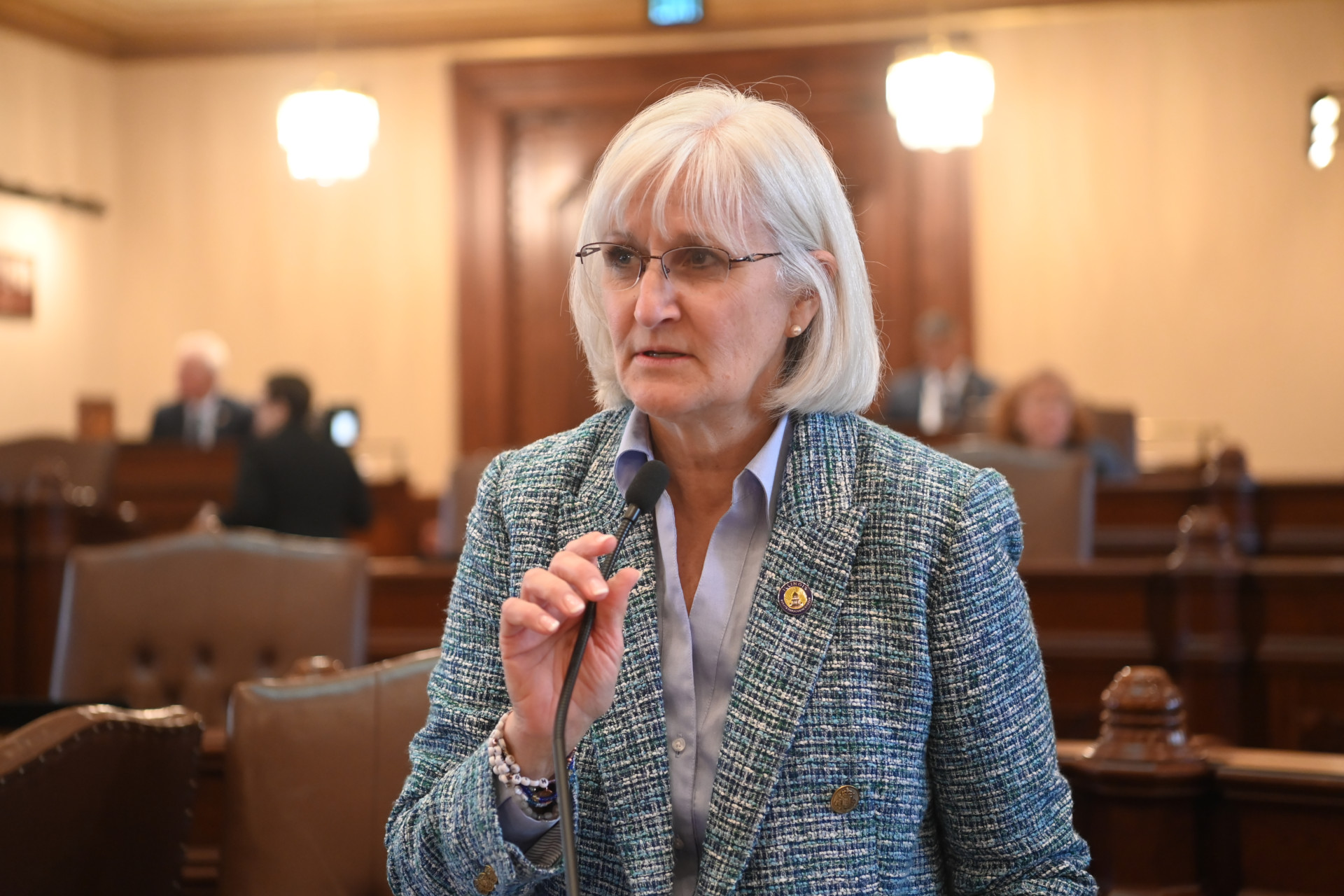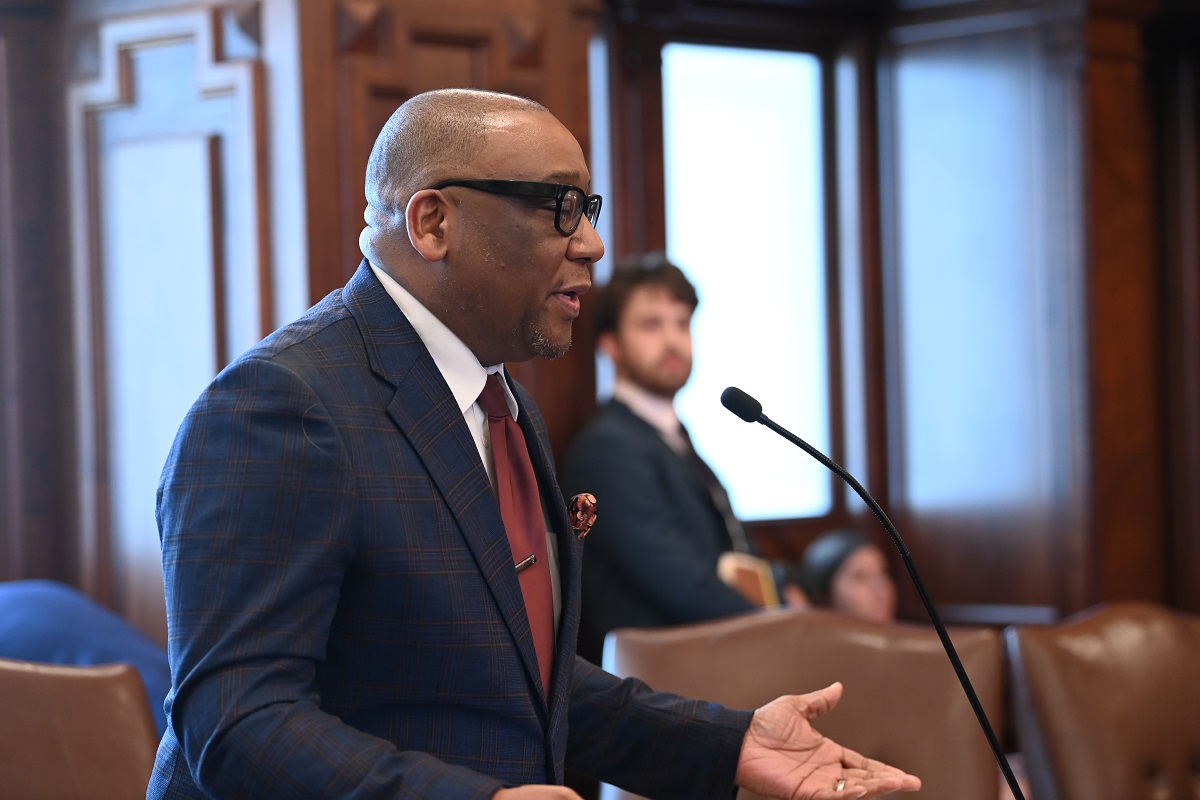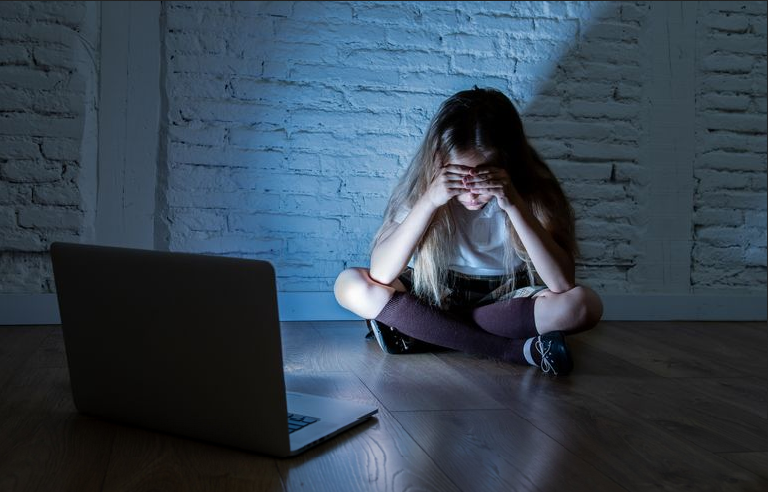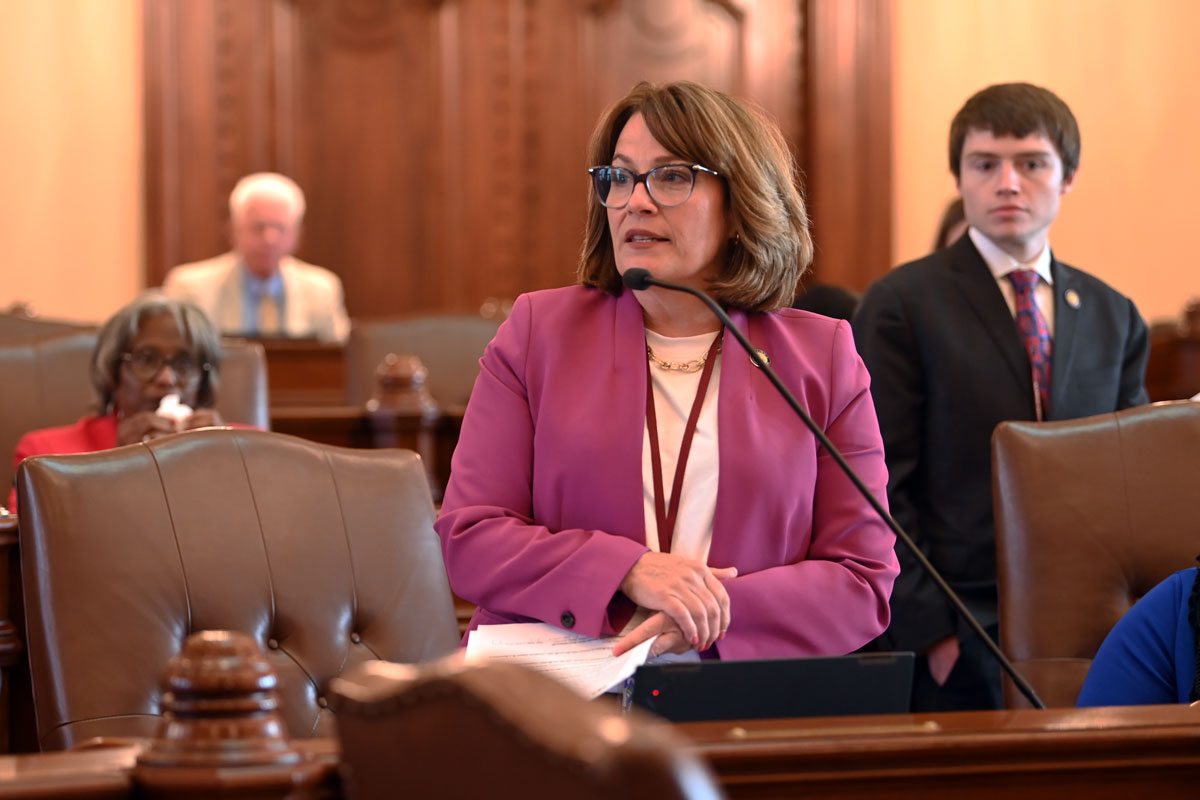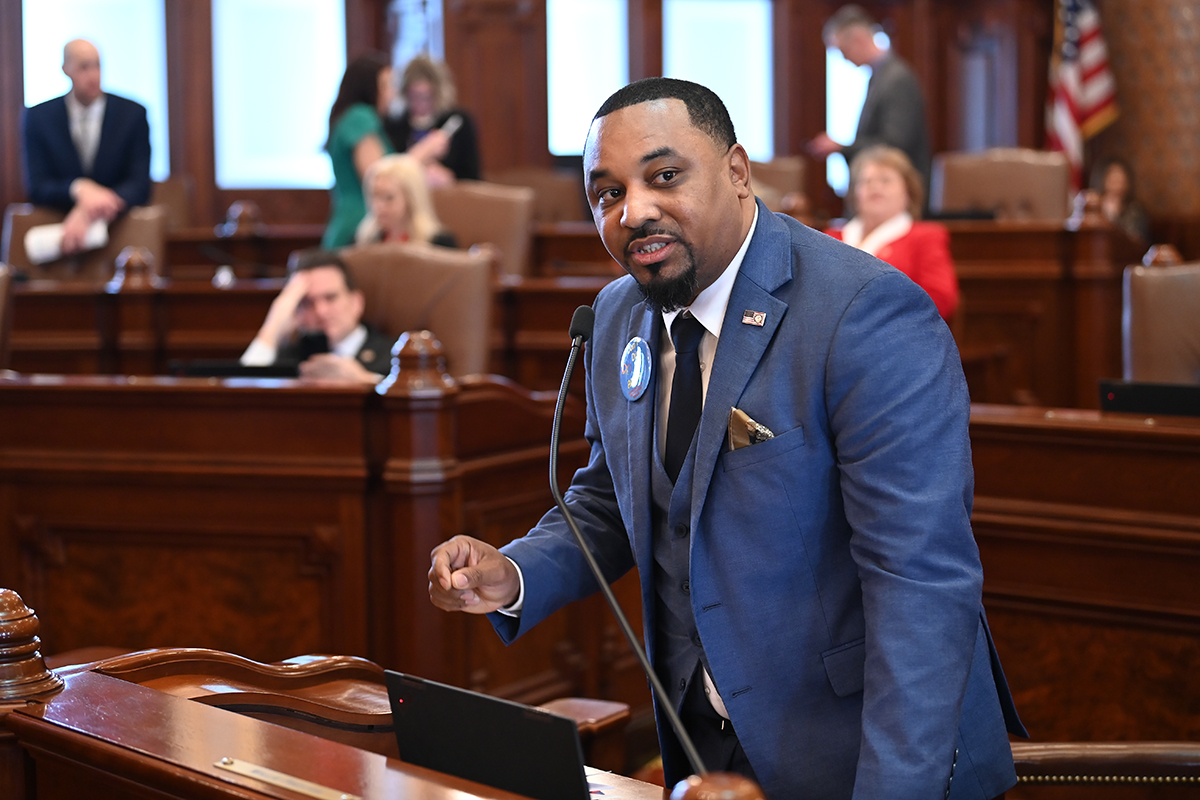- Details
- Category: News
The Illinois Environmental Council (IEC) released its annual Legislative Environmental Scorecard this week, scoring state legislators based on their voting record on legislation affecting the environment during 2025 legislative business. Senate President Don Harmon has been honored with a perfect voting record on the environment.
The 2025 Legislative Environmental Scorecard includes 16 legislative measures. Specific priorities from this year’s Scorecard include:
- PFAS Product Phase-Out – HB2516 (Rep. Rashid / Sen. Morrison)
- Phases out the use of PFAS (per- and polyfluoroalkyl substances), aka “forever chemicals," in the manufacturing of children’s products, cosmetics, intimate apparel such as sleepwear or underwear, menstrual products, and dental floss by 2032.
- Climate Displacement Act – SB1859 (Sen. Guzmán / Rep. Guzzardi)
- In a bold commitment to proactive, people-centered climate policy, this bill establishes Illinois’ first Climate Displacement Task Force.
- Open Space Lands Acquisition and Development (OSLAD) Funding – SB2466 (Sen. Aquino / Rep. Evans)
- Boosts grant funding for acquiring open space lands and supporting conservation projects in distressed communities and locations.
- Mahomet Aquifer Drinking Water Protections – SB1723 (Rep. Ammons / Sen. Faraci)
- In 2024, Illinois passed nation-leading legislation to regulate Carbon Capture and Sequestration, but the Mahomet Aquifer, which supplies clean water to nearly one million people throughout Central Illinois, was originally left unprotected. This bill extended that legislation to protect the sole-source aquifer and public drinking water from proposed carbon injection well projects.
A total of 64 state legislators received recognition for their 100% voting record during the legislative session in 2025. IEC releases its scorecard annually.
View Harmon's full voting record here: https://ilenviro.org/2025-environmental-scorecard

- Details
- Category: Majority Report
Collins law gives nurse midwives more independence and flexibility in care
SPRINGFIELD — To address health care deserts and provide mothers the care they need, State Senator Lakesia Collins’ new law will give certified nurse midwives more independence and greater flexibility in care they provide.
“This law gives our nurse midwives more flexibility in collaborating and delivering services and care to our communities,” said Collins (D-Chicago). “We are modernizing rules to fit with providers needs and giving our residents greater access to health care.”
Edly-Allen-backed Dillon's Law prepares communities to act on allergic reactions
SPRINGFIELD — According to the Food Allergy Research & Education organization (FARE), 33 million Americans have a food allergy, with the most common allergies including milk, tree nuts, shellfish and peanuts. To help those having an allergic reaction, Illinoisans will soon have easier access to epinephrine under a new law championed by State Senator Mary Edly-Allen and House Assistant Majority Leader Maurice West.
“Dillon’s Law is common-sense legislation that helps our communities become better equipped to help someone experiencing an allergic reaction,” said Edly-Allen (D-Libertyville). “If a person does not know they have an allergy, they may not have access to epinephrine, which is why this law could help save so many lives.”
Belt closes phony lifetime gym membership loophole
SPRINGFIELD — State Senator Christopher Belt’s measure to stop gyms and fitness centers from canceling or changing benefits of a promised lifetime membership has been signed into law.
“When gyms offer lifetime memberships, they shouldn’t penalize members for actually using the facility,” said Belt (D-Swansea). “If you sign up for a lifetime membership at a set price, the gym shouldn’t be able to come back a year later and raise your fees.”
Sound of the State: Morrison on advocating for sexual assault survivors
No one should face barriers to care after experiencing sexual assault. Senator Julie Morrison (D-Lake Forest) explains how her new law requires hospitals to put survivors first—strengthening trauma-informed care, expanding nurse examiner training, and giving the Illinois Department of Public Health more authority to ensure hospitals meet their responsibilities.

In case you missed it
MEMBERS IN THE NEWS
Senator Omar Aquino, Chicago: New IL law will help people refinance private student loans | WAND
Senator Laura Fine, Glenview: Pritzker signs toxic baby food awareness bill into law | WAND
Senator Rachel Ventura, Joliet: New Ventura law to ensure continued health insurance coverage for ongoing treatments | WJOL
Copyright 2025 - Illinois Senate Democratic Caucus - All Rights Reserved
- Details
- Category: Majority Report
Law led by Peters protects Illinois workers from federal rollbacks
SPRINGFIELD — A new law sponsored by State Senator Robert Peters ensures the state maintains strong protections for wage standards, coal mine safety and occupational health, even if federal laws are weakened or repealed.
“Our workers are the backbone of our state, and when things become uncertain at the federal level, it’s our job to ensure their rights are protected,” said Peters (D-Chicago). “This law sends a clear message that in Illinois, we fight for working people, and we will not back down.”
Morrison-led Alicia's Law strengthens protections against online child exploitation
SPRINGFIELD — With the rise in digital communication among children, threats from online predators have become more frequent and sophisticated. To help law enforcement respond faster and more effectively, State Senator Julie Morrison’s new law expands the authority of Illinois State Police (ISP) to investigate and stop online child exploitation.
“Law enforcement should have every tool available to track down those who try to harm children,” said Morrison (D-Lake Forest). “This new law ensures Illinois State Police can work seamlessly with other agencies to pursue online predators, no matter where they’re located.”
Hastings announces $1 million Rebuild Illinois Grant to support Road Home Program at Rush Hospital
CHICAGO — State Senator Michael E. Hastings joined fellow Senators Patrick Joyce, Paul Faraci, Meg Loughran Cappel, Michael Porfirio and Michael Halpin for a visit to Rush University Medical Center’s acclaimed Road Home Program, announcing a $1 million investment through the Rebuild Illinois Program administered by the Illinois Department of Commerce and Economic Opportunity.
The grant will be used to expand services that provide critical mental health and transitional support to returning veterans and their families. The Road Home Program—nationally recognized for its innovative approach to treating post-traumatic stress disorder, traumatic brain injury, and other challenges veterans face—offers specialized, no-cost care to military members and their loved ones.

In case you missed it
MEMBERS IN THE NEWS
Senator Adriane Johnson, Buffalo Grove: Lake County officials discuss the challenges of public transportation during townhall meeting | Chicago Tribune
Senator Laura Murphy, Des Plaines: Giannoulias legislation to enhance protections for Illinois libraries and librarians signed into law | The Leader Union
Senator Celina Villanueva, Chicago: Illinois law empowers officials to crack down on predatory towing | Regional Media
Copyright 2025 - Illinois Senate Democratic Caucus - All Rights Reserved
- Details
- Category: News
Senate President Don Harmon joined lawmakers and staff on August 19 for Legislators’ Day in the Preserves.
Held at Thatcher Pavilion and Trailside Museum of Natural History in River Forest, the event gave legislators and their staff the opportunity to experience what the Forest Preserves of Cook County has to offer.
President Harmon met forest preserve employees who handle seed amplification and the fisheries, saw a heavy machinery demonstration, tried his hand at archery, and even took a ride in a bucket truck.
The Forest Preserves of Cook County is an area of 70,000 acres of wilderness offering educational and recreational opportunities for residents.

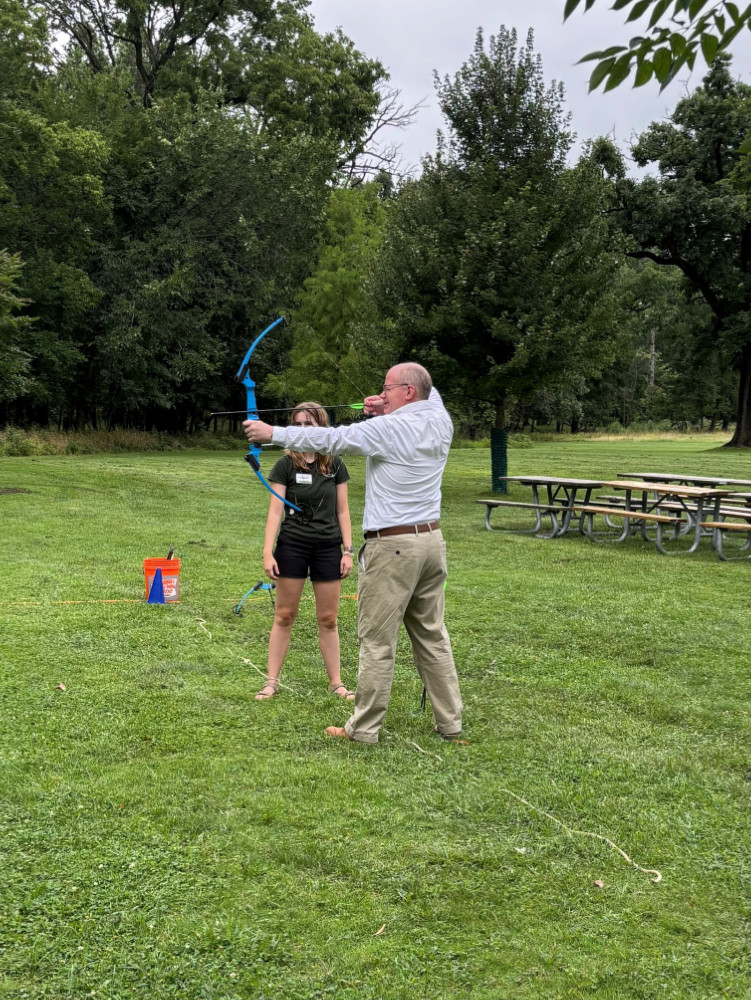

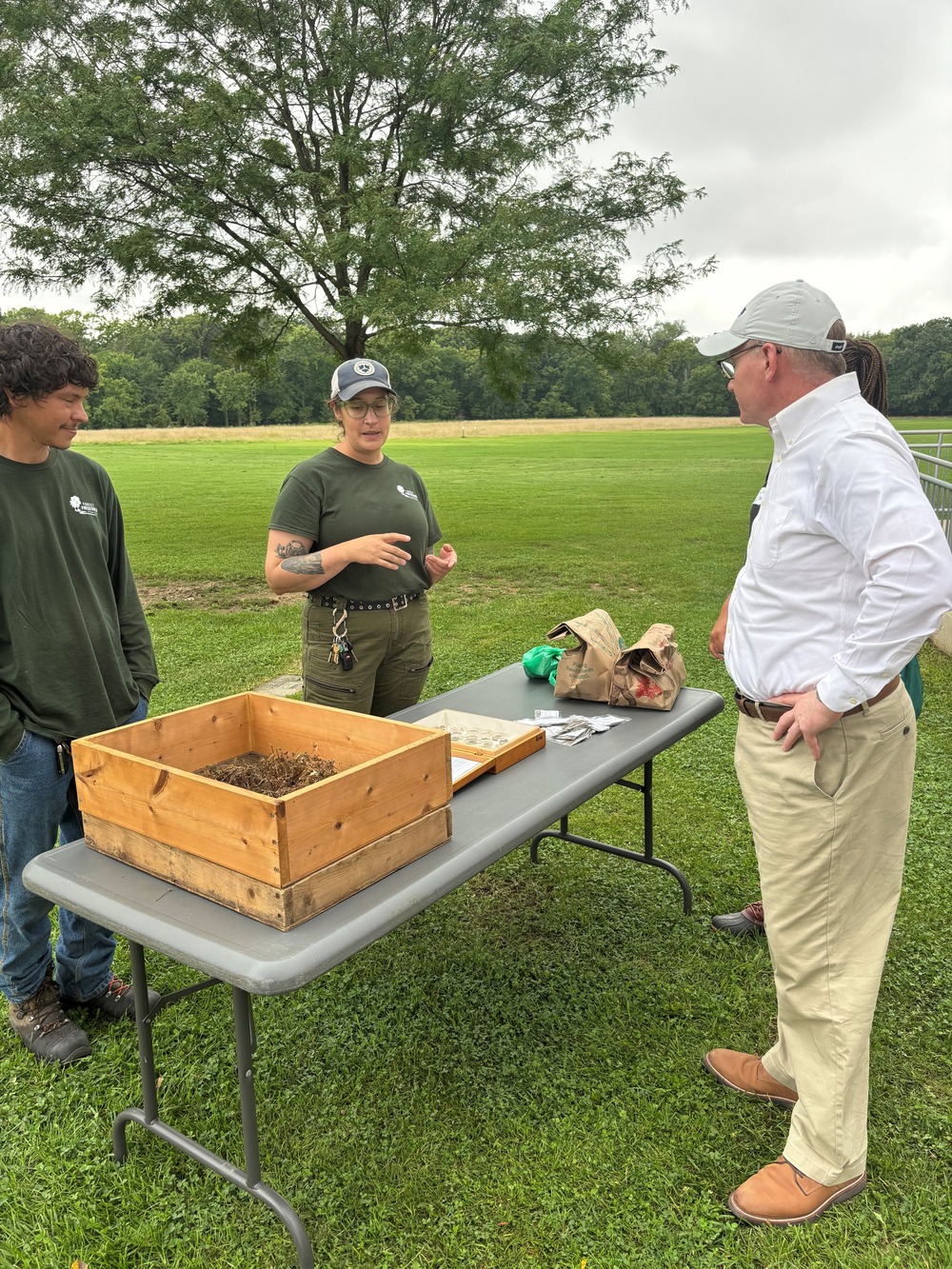
- Details
- Category: Majority Report
Loughran Cappel law strengthens advocacy for young children with disabilities
SPRINGFIELD — After acknowledging a gap in early childhood disability advocacy, State Senator Meg Loughran Cappel championed a new law that ensures stronger representation for young children with disabilities.
“When Early Childhood Education is being discussed, it’s essential we include a representative to advocate for what’s in the best interest of all children, including those with disabilities, ,” said Loughran Cappel (D-Shorewood). “In Illinois, we have made strides in our early childhood education efforts, and this law continues to prove that we care about all children getting the education they need.”
Preston measure expanding advocate information for families of students with disabilities signed into law
SPRINGFIELD — State Senator Willie Preston spearheaded a new law to expand requirements for school districts to notify families of students with disabilities of advocates experienced in Individualized Education Programs.
“This legislation ensures that families know what services are available to them as they help their child navigate the educational space,” said Preston (D-Chicago). “All students deserve a fair and just education experience.”
Equine therapy will be more accessible under Murphy law
SPRINGFIELD — Medically necessary equine therapy will soon be covered by health insurance thanks to a law championed by State Senator Laura Murphy.
“There are many effective forms for therapy, but insurance roadblocks and cost barriers often leave patients without access to the care they need,” said Murphy (D-Des Plaines). “Equine therapy can support mental health and emotional growth, and soon it will be available to individuals who could benefit from this treatment but couldn’t afford it.”
Sound of the State: A conversation on Illinois' historic new commission
The Illinois State Fair is more than fun and funnel cakes — it’s a celebration of agriculture, youth leadership, and investment in our state’s #1 industry. State Senator Doris Turner and Illinois Department of Agriculture Director Jerry Costello talk about upgrades to the fairgrounds, diversity in ag, and what the future holds for FFA, 4-H, and more in this episode of Sound of the State.

In case you missed it
MEMBERS IN THE NEWS
Senator Cristina Castro, Elgin: Illinois to start tracking firefighter cause of death in 2026 | WAND
Senator Adriane Johnson, Buffalo Grove: Emergency 2-1-1 services will receive state oversight under new law | 25 News Now
Senator Ram Villivalam, Chicago: Pritzker signs bill addressing school, athletic events conflicting with cultural, religious holidays | WAND
Copyright 2025 - Illinois Senate Democratic Caucus - All Rights Reserved
More Articles …
- RESCHEDULED: Senior town hall listening session with Rep. Camille Lilly
- President Harmon to Edgar Fellows: All I needed to learn about being a legislative leader I learned playing in a rock and roll band
- The Majority Report 08/04/25 - Strengthening safety
- Pritzker, Welch and Harmon: Homeowners deserve transparency from State Farm, not unexplained rate hikes

